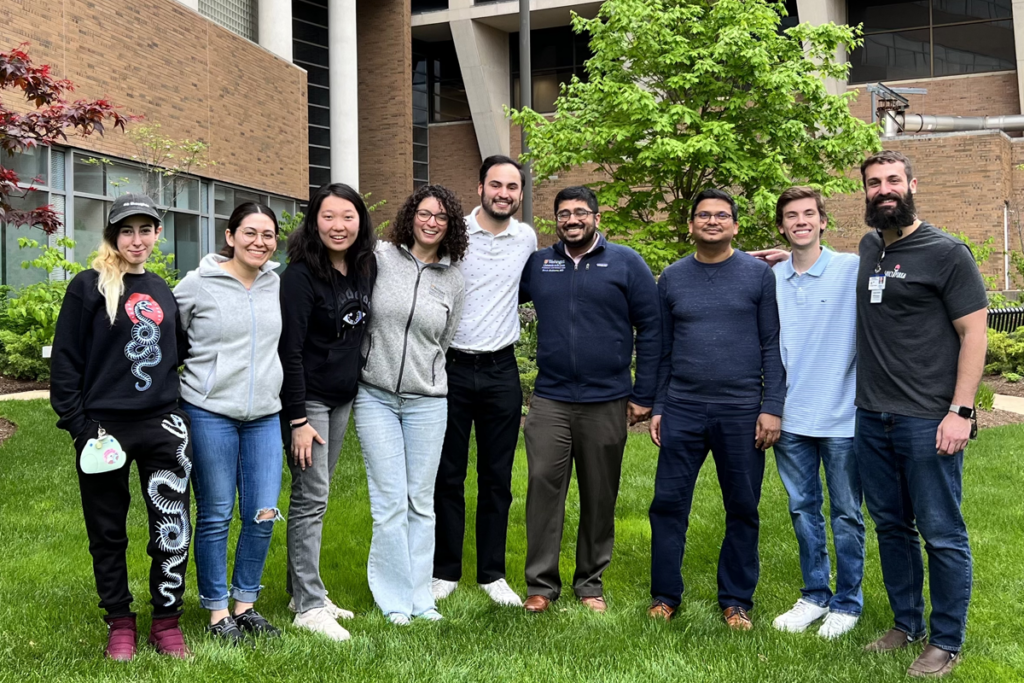Hrishikesh Kulkarni MD, MSCI, from the Division of Pulmonary and Critical Care Medicine recently had two manuscripts published in Science Immunology and a Phase 3 clinical Trial on complement inhibition in COVID-19 in the Lancet Respiratory Medicine.

Lung epithelial cell–derived C3 protects against pneumonia-induced lung injury
The complement cascade is made up of innate immune defense proteins that protect the host against pathogenic microorganisms. The activities of C3, a central component of the cascade, is mainly attributed to circulating C3 synthesized by the liver. Using mouse models and human specimens, the Kulkarni Lab and their collaborators demonstrated that local C3 protein production in the lung is a key host defense mechanism and is upregulated during infection.
Additionally, it plays a critical role in the protection against cell death caused by Pseudomonas aeruginosa pneumonia. This is a change in the thought process in the field, as although complement proteins primarily operate in the circulation, the work demonstrates in vivo relevance at tissue sites such as the lungs, where our body interacts with the environment.
Intravenous ravulizumab in mechanically ventilated patients hospitalised with severe COVID-19: a phase 3, multicentre, open-label, randomised controlled trial
This work also has potential application to the results from a recently published multicenter Phase III study in severe SARS-CoV-2 infection. The Kulkarni Lab had previously shown that complement activation is distinctively higher in patients with severe COVID-19. Hence, they participated in a multicenter Phase III study using ravulizumab, a C5 inhibitor, in critically ill patients with SARS-CoV-2 infection.

Putting our basic-translational work into perspective, the results of this study suggest that we may need to investigate the sources of complement proteins and their activity in the lungs as a target to mitigate critical illness.
Hrishikesh S. Kulkarni, MD
The study showed no difference in overall survival at day 29 between patients receiving ravulizumab plus basic supportive care (BSC), and those receiving BSC. The safety profile of ravulizumab was consistent with that observed in the post-marketing setting and in clinical studies of approved indications.
However, despite the lack of efficacy, the study adds value for future research into complement therapeutics in critical illnesses by showing that systemic complement inhibition can be accomplished in critically ill patients with acute respiratory distress syndrome (ARDS) and sepsis. Putting our basic-translational work into perspective, the results of this study suggest that we may need to investigate the sources of complement proteins and their activity in the lungs as a target to mitigate critical illness. Additionally, the context of the lung injury in terms of the cause and duration is also important to consider when deciding how to best modulate complement to reduce the burden of severe pneumonia.